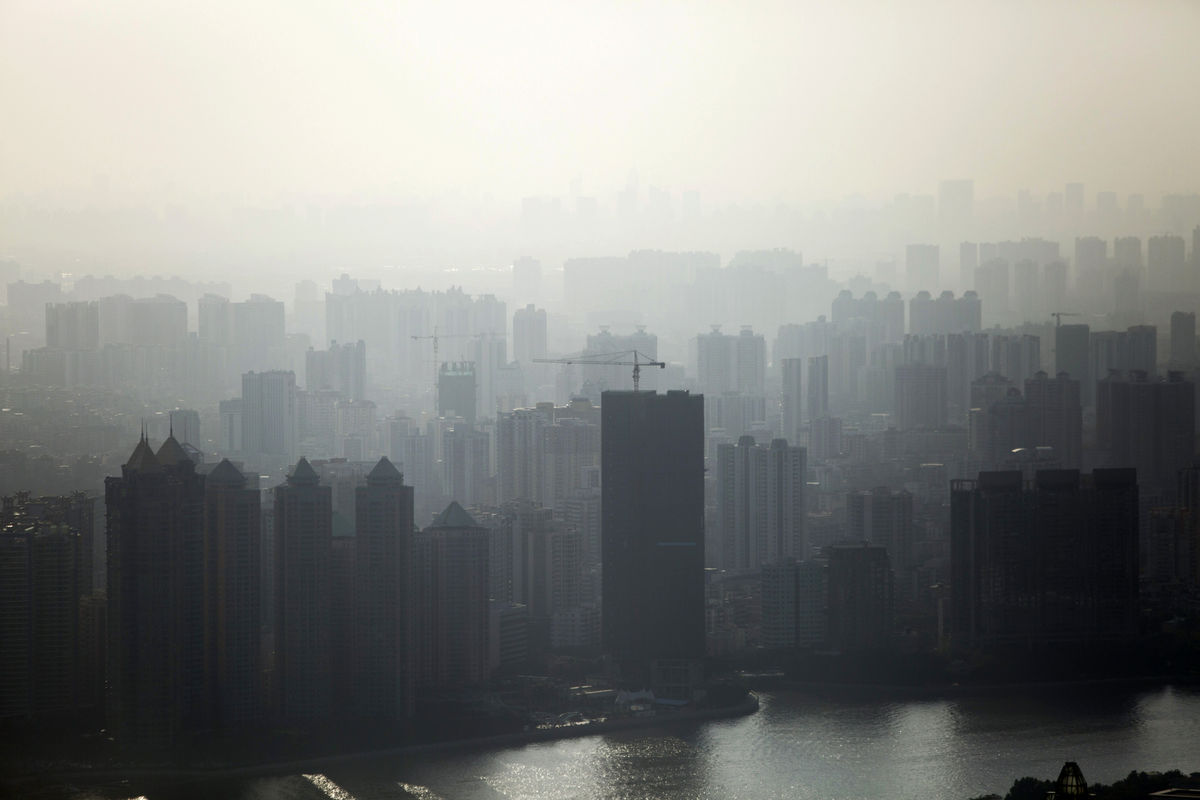China’s home buyers are being offered no-money-down purchases in an echo of the subprime lending that triggered a U.S. economic meltdown and the global financial crisis.
Deals skirting government requirements for minimum 30 percent down payments have emerged this year from Guangzhou and Shenzhen in the south to Beijing in the north as real-estate sales slump, according to state media and statements by government agencies and developers.
Loosening down-payment requirements could erode China’s financial stability by adding to risks for property companies, lenders and an economy already heading for the weakest growth in 24 years. Government warnings to consumers indicate that officials will strive to limit such arrangements, a sign of stress in a property market with a glut of homes.
“The risk is severe for developers and third parties because there is no commitment from home buyers,” said Ding Shuang, senior China economist at Citigroup Inc in Hong Kong. “Zero down payment has appeared in the U.S. before. It basically enabled unqualified people to buy houses,” said Ding, who used to work for the International Monetary Fund.
“We need to see whether this will become widespread,” Ding said. “For now, it seems still sporadic.”
Sales Sliding
The practice threatens to add to the build-up of risks in China’s $7 trillion shadow banking industry, with developers or third parties arranging funding to cover down-payment requirements, according to Shen Jianguang, Hong Kong-based chief Asia economist at Mizuho Securities Asia Ltd.
China’s home sales slid 10.2 percent by value in the first five months of this year, the statistics bureau said today. The Shanghai Stock Exchange Property Index rose 0.3 percent as of 2:09 p.m. local time, paring this year’s decline to about 4 percent.
In Guangzhou, in the southern province of Guangdong, nearly 20 housing developments rolled out no-down-payment plans to boost sales, Nanfang Daily, Guangdong’s official Communist Party newspaper, reported in April, as government agencies in Guangzhou and Shenzhen issued warnings against the practice.
“‘Zero down payment’ can’t solve home buyers’ problems of shortages of funds, and it has to rely on unconventional practices such as paying the down payment for the customer at high interest, or fraudulently inflating the property price to swindle banks out of loans,” the Urban Planning Land and Resources Commission of Shenzhen Municipality said in an April 10 statement.
Shadow Banking
Credit data released yesterday showed the government reining in shadow banking while allowing higher bank lending to support a faltering economy. New yuan loans exceeded forecasts at 870.8 billion yuan ($140 billion) for May.
Poly Real Estate Group Co. is letting buyers delay full down payments at its Central Park development in southeastern Nanjing city, the official China News Service reported June 6. Buyers can pay deposits of 50,000 yuan and then 15 percent of the home price in three months’ time. The smallest unit is about 70 square meters and costs about 1.2 million yuan, the report said.
A staff member who declined to give his name confirmed the payment details in the report when Bloomberg called the development’s sales office. A Poly investor relations officer in Guangzhou, who gave only his surname, Song, said the arrangement shouldn’t be described as “zero down payment.” “Home prices are actually pretty high,” Song said by phone on June 11. “We are helping out those college grads to buy properties as they might not be able to put down a big sum all at once.”
U.S. Frenzy
In the U.S., the mortgage frenzy last decade that ended in a meltdown featured a loosening in standards that included “no-doc” or “low-doc” loans with patchy documentation requirements, low “starter” rates that reset higher after a period of time and “interest-only” contracts that had no principal payments for a set time.
Since 2010, China’s government has required minimum 30 percent down payments for first-home buyers, with higher amounts for purchasers of second homes. Property owners’ limited leverage constrains risks, with Credit Suisse Group AG estimating in a June 4 report that China had an aggregate loan to property-value ratio of 8 percent in 2013 compared with 43 percent in the U.S.
Strict Bans
The China Banking Regulatory Commission said at an internal meeting that financial institutions should strictly ban “zero down payment” arrangements and developers arranging buyers’ down payments, Caixin.com reported May 14.
“It is still limited in scale right now, but it is going to be a long-term trend,” said Liu Yuan, a Shanghai-based research director for Centaline Group, a property company. Such arrangements are “between legal and illegal,” he said.
A 22 percent drop in the construction of new buildings in the first four months of 2014 highlighted the potential for property to drag down an economy projected to grow 7.3 percent this year, the slowest pace since 1990. UBS AG has estimated real-estate accounts for more than a quarter of demand in the economy, including spin-offs from construction machinery to household appliances.
“The oversupply problem is very severe,” Gan Li, director of the Survey and Research Center for China Household Finance, said in Beijing on June 10, citing a survey of 28,000 households in 29 provinces that indicated 22 percent of urban homes were vacant in 2013.
In Beijing, at a Beijing Pearl River Real Estate Development Co. project called Season Joy City, on the southern outskirts of the city, property company SouFun Holdings Ltd. is offering loans to cover up to 50 percent of the purchase price of apartments. On a hot summer morning, a couple with a toddler were the only prospective buyers, looking at models of apartment blocks in a showroom. Promotional signs said property prices “will never fall.”
To contact Bloomberg News staff for this story: Xiaoqing Pi in Beijing at [email protected]
To contact the editors responsible for this story: Paul Panckhurst at [email protected]Nerys Avery
Source: bloomberg.com

